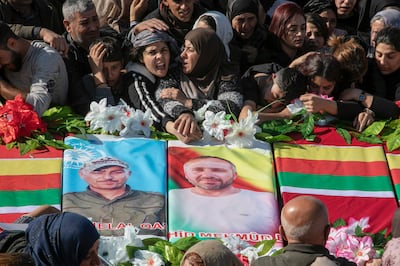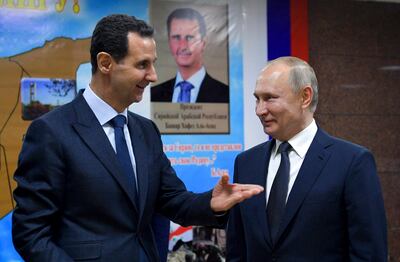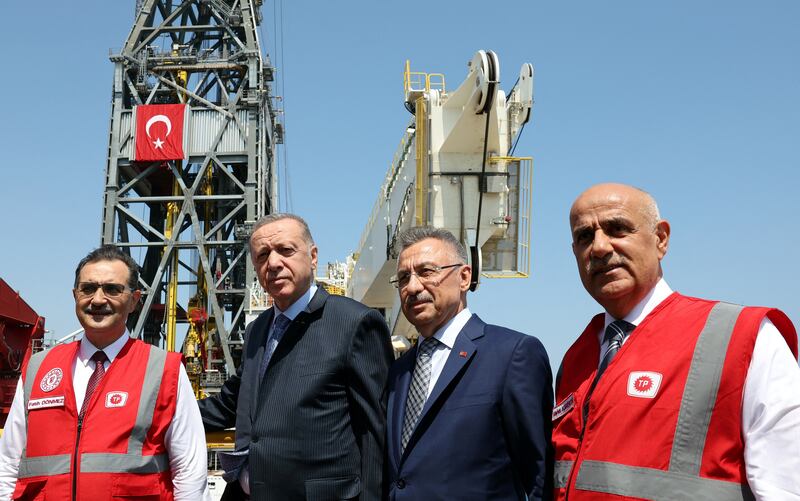Turkey’s latest foreign policy moves have left me feeling a bit of deja vu. Much like six months ago, Ankara has again been renewing once-frigid regional ties, mulling another assault on Kurdish militants in northern Syria, and patting itself on the back for nailing down the Ukraine grain deal.
This time around, Ankara’s new friend is in Cairo, rather than Tel Aviv or Yerevan. And there appears to be more urgency to the proposed military operation against the YPG after the recent terrorist attack in the heart of Istanbul, not to mention the looming election.
Turkey and Egypt have, of course, been at odds since the 2013 removal of Mohammed Morsi’s Muslim Brotherhood government, after which Ankara welcomed several of the group’s exiled leaders. Rapprochement talks began nearly two years ago and had waxed and waned until last week, when Egyptian President Abdel Fattah El Sisi and his Turkish counterpart shook hands at a World Cup reception hosted by Qatari Emir Sheikh Tamim.
It’s widely thought the Qatari leader organised the meeting, which was seen as a watershed, as two regional powers appeared to set aside their differences and embrace co-operation. With the Brotherhood largely defunct, the main issue had been Libya, where Ankara supported the Tripoli-based GNA in its fight against Field Marshal Khalifa Haftar, backed by Egypt and other Arab states.

With Libya now mostly peaceful and headed, hopefully, towards elections, that concern, too, has been largely settled. Energy resources in the Eastern Mediterranean has been their other point of contention. In 2020, in response to Turkey’s late 2019 maritime borders agreement with Libya’s GNA, Greece and Egypt agreed on their own maritime deal, and Cairo joined the East Med Gas Forum. Ankara was none too pleased about these moves.
Thus, it came as something of a surprise that the day after the Sisi-Erdogan handshake, Greek Foreign Minister Nikos Dendias arrived in Cairo to sign a maritime search-and-rescue agreement. Turkey quickly denounced the deal, blaming Greece’s desire to further its maximalist claims. Yet, Ankara refrained from criticising Egypt, perhaps because just a month prior Turkey and Libya had signed a follow-up deal of their own, on oil and gas exploration.
Setting aside Greece, which is a unique foreign policy file for Turkey, Ankara has mostly taken a softly-softly approach across the region of late. Since mid-2020, Turkey has improved relations with Saudi Arabia, the UAE, Israel, Armenia and Egypt.
Why the turn to diplomacy? Partly for financial support during an economic crisis. And indeed, Turkey now looks set to receive $5 billion from Saudi Arabia and $10 billion from Qatar, with more likely to come. But it is also to increase regional amity and stability, which tends to boost co-operation and economic growth.
What’s remarkable is that Turkey pulled off its diplomatic breakthroughs without sacrificing its independent foreign policy. Cairo had reportedly set two conditions for renewed ties: a full Turkish withdrawal from Libya and the handing over of exiled Brotherhood leaders. Similarly, Israel is widely thought to have told Turkey it had to shut down the Istanbul offices of Hamas. Ankara did none of these things, yet still improved ties.
Turkey may have made some yet-to-be revealed promises, but this bold balancing act tracks with its broader foreign policy positioning. Ankara has found that it can go against the western grain – boosting trade with, rather than sanctioning, Russia; attacking the US-partnered YPG; refusing to approve new Nato members; and sidelining free speech – and suffer minimal consequences as long as it simultaneously embraces the West’s agenda, as with the grain deal, hosting millions of refugees, supporting Ukrainian sovereignty and renewing ties with the likes of Saudi Arabia and Israel.
A zig for every zag seems to work just fine. Next up could be a meeting between Mr Erdogan and Syrian President Bashar Al Assad, possibly brokered by Russian President Vladimir Putin. Turkish officials have said a summit could happen before Turkey’s upcoming elections, set for June, and it would probably be seen as another example of Ankara thumbing its nose at the West.

So what might be the zag? Last month, neighbours and long-time foes Israel and Lebanon settled their long-standing maritime dispute. Now there’s talk that Lebanon and Syria will soon meet to nail down their borders in the Mediterranean. Meanwhile, Egypt and the Palestinian Authority, along with the unlikeliest of partners, Israel and Hamas, are set to seal a $1.4 billion deal to extract gas off the coast of Gaza.
Suddenly it’s not too far-fetched to imagine Turkey, Syria, Lebanon, Egypt, Libya and Israel largely aligned on maritime borders and Mediterranean energy. And with the backing of Gulf states, this group might be able to bring Greece and Cyprus on-side as well.
You might recall that it was Mr Putin who told Mr Erdogan, just last month, that his vision of Turkey as an energy hub could be made real. At a meeting in north-eastern Syria on the weekend, Russia urged the YPG to withdraw southward and allow Syrian regime forces to take control of a buffer zone along the Turkish border. Such a shift would eliminate the need for another Turkish incursion and clear the way for an Assad-Erdogan summit.
The timing is good, as Ankara expects to resume drilling in the Mediterranean in the coming days and its Black Sea gas discovery is expected to come online in the next few months. With a bit of luck, Mr Erdogan might soon be well positioned to achieve his gas hub dreams and potentially provide Europe – struggling these days to wean itself from Russian gas – with a much-needed energy lifeline.
Zig, zag, zoom.





